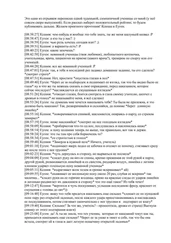Then they turned into Steinweg, Kurt snuffling and leaning forward, but keeping up. The kids used to roller-skate on the smooth tarmac here, and they had drawn chalk circles on the street. That was where the butcher had been, the one who sold Irina “grab bag” packages put together discreetly in his back room. And that had been the People’s Bookshop, now a travel agency. That was the site of the former state cooperative store, the Konsum, emphasis on the first syllable (and sure enough, it didn’t have much to do with genuine con sump tion), where very long ago—Alexander couldn’t quite remember it now—milk had been available in exchange for ration coupons.
And there was the post office.
“The post office,” said Alexander.
“Yes,” said Kurt.
After that they said no more.
They climbed the hill to the old water tower. There was a fine view down to the River Havel from here. They sat on the bench and spent a long time watching the sunset sky as it slowly turned red.
They had gone to spend a few days on the Pacific coast at New Year. A truck carrying coffee took them from the little airfield to Puerto Ángel. An acquaintance had recommended the place: romantic village, picturesque bay with rocks and fishing boats.
The bay was indeed picturesque. Apart from the concrete loading ramp for coffee.
The village itself: twenty or twenty-five little houses, a sleepy post office, and a kiosk selling alcoholic beverages.
The only place available to rent was a tiny hut (which the landlady, a woman of Spanish origin, called a “bungalow”). At least it had a tiled roof. It contained an iron bedstead under a mosquito net (which the landlady called a “pavilion”) hanging from the ceiling. Two bedside tables. Coat hangers on nails knocked into the posts here and there.
Outside the bungalow there was a roofed terrace with two rickety deck chairs and a table.
“Oh, how lovely,” said Charlotte.
She ignored the bats hanging upside down from the eaves of the roof, and thus in effect right inside the room, since as usual in these parts there was a gap as wide as a hand between wall and roof. She overlooked the large, blotched pig wandering through the garden, churning up earth around the shed that the landlady called a bathroom.
“Oh, how lovely,” she said. “We’ll have a nice, refreshing rest here.”
Wilhelm nodded, and dropped into one of the deck chairs, exhausted. The legs of his pants rode up, partly exposing his thin, pale calves. Skinny enough to start with, he had lost another five kilos in the last few weeks. His angular limbs resembled the deck chair in which he was sitting.
“We’ll have some lovely excursions into the nearby countryside,” Charlotte predicted.
However, there turned out to be practically no countryside at all near Puerto Ángel.
They did once go to nearby Pochutla—in another truck carrying coffee—and visited the Chinese store there. Wilhelm stalked abstractedly through the store, which was stuffed to bursting with wares, and stopped in front of a large, polished, spiral seashell.
“Twenty-five pesos,” said the Chinese salesman.
A steep price tag.
“Oh, you’ve always wanted one of those,” said Charlotte.
Wilhelm shrugged his shoulders.
“We’ll buy it,” said Charlotte.
She paid without haggling over the price.
Another time they went to Mazunte on foot. The beaches were all much the same, with the sole difference that the beach in Mazunte was covered with dark patches. They found out why when they saw fishermen removing the shell from a huge turtle while the creature was still alive.
They didn’t go to Mazunte again, and they stopped eating turtle soup.
Then, at last, New Year’s Eve came. The men of the village had been loading coffee all day, with much shouting and noise. Now they had been paid their wages. By three in the afternoon they were all drunk, and by six they were senseless. All was quiet in the village. Nothing stirred, there was no one in sight. Charlotte and Wilhelm had lit a little fire, as they did every evening, using the wood that the mozo gathered for them for a few pesos.
Darkness fell early; the evenings were long.
Wilhelm smoked.
The fire crackled.
Charlotte pretended to show an interest in the bats swooping past like shooting stars in the firelight.
At midnight they drank champagne out of water tumblers, and they both ate their grapes: it was a local custom to eat twelve grapes as the New Year came in. Twelve wishes—one for each month.
Wilhelm ate all his grapes at once.
Charlotte wished, first of all, for Werner to be still alive. She used up three grapes on that wish alone. Kurt was alive, she knew; she had heard from him by mail. For reasons that he didn’t mention in his letter, he had ended up in the Urals somewhere, and now he was married and still living there. But there was no news of Werner. In spite of Dretzky’s efforts. In spite of Werner being reported missing to the Red Cross. In spite of her petitions to the Soviet consulate—the first of them had been made six years ago.
“Keep calm, citizen. Everything will take its course.”
“Comrade, I am a member of the Communist Party, and all I want is to find out whether my son is alive.”
“You may be a member of the Communist Party, but that doesn’t give you special privileges.”
Pig-faced bastard. I hope they shoot you. And she bit on another grape.
And I hope they shoot Ewert and Radovan as well, why not? One grape each.
Another grape was used to convert their fate into typhoid fever. The kind that can be cured. Another grape to have Ewert’s wife, Inge, who had recently become editor in chief, infected by the typhoid fever too.
Suddenly there were only three grapes left. She must go carefully with them now.
The tenth: good health for all her friends—who exactly were they? The eleventh: for all who were still missing. She wished them well every year.
And as for the twelfth grape… she simply ate it. Without wishing for anything. Suddenly it was gone.
Anyway, this was pointless. She’d wished five times already for them to go home to Germany in the coming year, and it had done no good. They were still here.
Still here—while back there in the new state, positions were being handed out.
Two days later they flew back to Mexico City. The editorial meeting was on Wednesday, as usual. It was true that Wilhelm had not been reelected to the management committee, but he retained his old functions on the Demokratische Post; he drew up the balance sheet, managed expenses, helped with the makeup of the journal and the distribution of the print run, which had shrunk to a few hundred copies.
Charlotte, however, also felt it her duty to take part. The editorial meeting was once a week, and you never knew if it wasn’t a Party meeting at the same time. The smaller the group, the more intricately mingled it all was: Party cell, editorial committee, management committee.
There were still seven of them. Three of those were managers. Well, two—since Wilhelm had not been reelected.
Charlotte found it difficult to get through the meeting, sitting bent double at the end of the table, barely able to look Radovan in the eye. Inge Ewert was talking nonsense, didn’t even know how wide the print area was, confused a column with a signature, but Charlotte suppressed any urge to intervene or make a suggestion, and she deliberately overlooked printer’s errors in the article she had been given to proofread, so that the comrades in Berlin would see for themselves how low the journal had sunk since she had been removed from the post of editor in chief.
Removed for “infringement of Party discipline.” So Charlotte could see no alternative to sending a report of her own to Dretzky. Her “infringement of Party discipline” had consisted mainly in her publishing an appreciation of the new GDR law on equal rights for women, which she did on 8 March, Women’s Day, although the idea had been turned down by the majority of the editorial committee as “of no interest.” That was the real scandal.
Читать дальше












